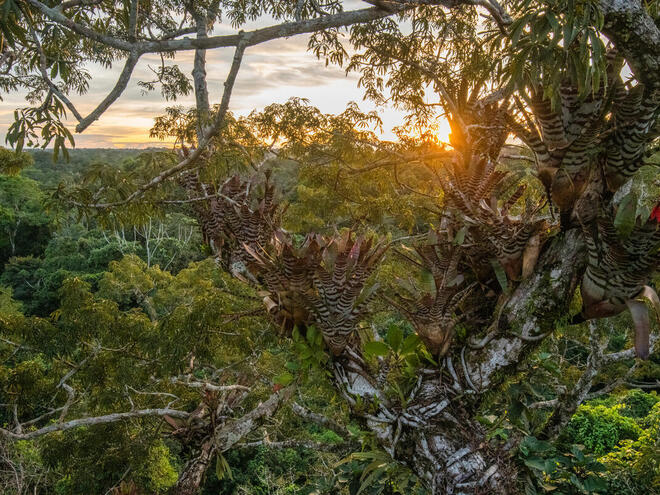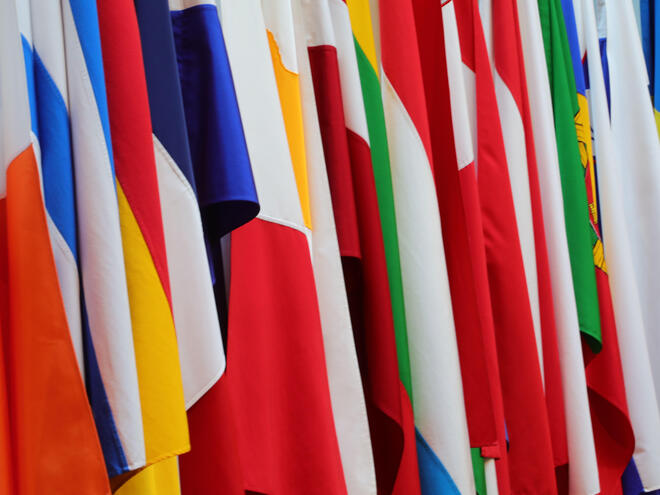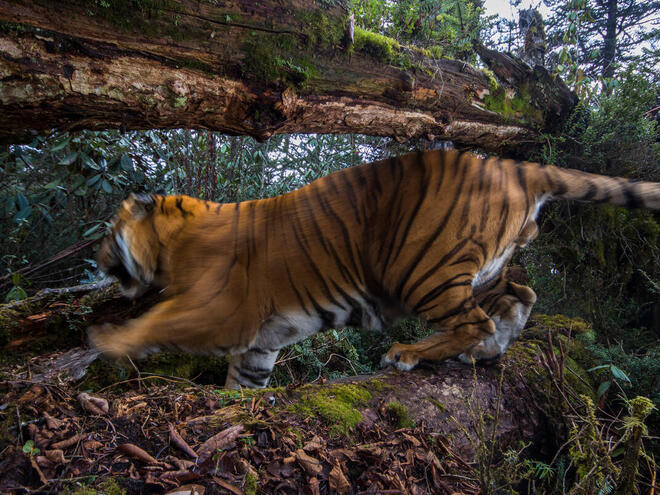 Here are five ways that WWF helped to fight the climate crisis in 2022.
Here are five ways that WWF helped to fight the climate crisis in 2022.Published December 27, 2022 at 06:00PM
View on Worldwildlife.org
The Chicago Health Academy for Medical and Pharmacy Education Interdisciplinary Studies Project: a collaboration between Chicago State University School of Pharmacy, Roosevelt University School of Pharmacy, UIC Urban Health Program, and the City Colleges of Chicago
 Here are five ways that WWF helped to fight the climate crisis in 2022.
Here are five ways that WWF helped to fight the climate crisis in 2022. A 44,000-acre conservation easement will protect four of the world's most important rivers for salmon habitat.
A 44,000-acre conservation easement will protect four of the world's most important rivers for salmon habitat. In a big win for biodiversity, countries struck a global agreement to halt and reverse nature loss during negotiations in Montreal.
In a big win for biodiversity, countries struck a global agreement to halt and reverse nature loss during negotiations in Montreal. These actions send a signal to the world, but there’s a lot more to do
These actions send a signal to the world, but there’s a lot more to do
 Despite the dual threats of a rapidly warming planet and declining biodiversity, we still made major conservation strides toward protecting wildlife, wild places, and people in 2022.
Despite the dual threats of a rapidly warming planet and declining biodiversity, we still made major conservation strides toward protecting wildlife, wild places, and people in 2022.
 Leclercq is a grassroots organizer, educator, scholar, and artist whose primary focus is on environmental justice.
Leclercq is a grassroots organizer, educator, scholar, and artist whose primary focus is on environmental justice.
 The talks concluded with new and renewed global protections against poaching, illegal, and unsustainable trade in wild animals and plants that could help reverse trends driving biodiversity loss.
The talks concluded with new and renewed global protections against poaching, illegal, and unsustainable trade in wild animals and plants that could help reverse trends driving biodiversity loss. By conserving wildlife, from otters and elephants to tigers and oysters, we help protect the planet, including ourselves.
By conserving wildlife, from otters and elephants to tigers and oysters, we help protect the planet, including ourselves. All international climate talks begin with high hopes, and COP27 was seen as the moment for implementation and climate justice. Instead, it may be remembered as the COP of unmet expectations.
All international climate talks begin with high hopes, and COP27 was seen as the moment for implementation and climate justice. Instead, it may be remembered as the COP of unmet expectations. Snares, rudimentary traps that people have set by the millions on forest floors and snowy mountain pathways across Asia, are barely visible to the eye and a fatal danger to all wildlife.
Snares, rudimentary traps that people have set by the millions on forest floors and snowy mountain pathways across Asia, are barely visible to the eye and a fatal danger to all wildlife. A new program would transfer recycling responsibilities to the companies that use these materials for their products and packaging.
A new program would transfer recycling responsibilities to the companies that use these materials for their products and packaging. Water overuse, infrastructure, changes in the amount of rainfall, increased temperatures, and the climate crisis are decreasing the amount of water that has historically flowed in the Rio Grande.
Water overuse, infrastructure, changes in the amount of rainfall, increased temperatures, and the climate crisis are decreasing the amount of water that has historically flowed in the Rio Grande.
 Ambitions and promises need to translate into action, and at this COP, we will be looking for moments where we can set the stage to begin the real work and challenges around decarbonization.
Ambitions and promises need to translate into action, and at this COP, we will be looking for moments where we can set the stage to begin the real work and challenges around decarbonization.Computer Languages (clcoding): Fractal Data Science Professional Certificate : What you'll learn Apply structured problem-solving tec...